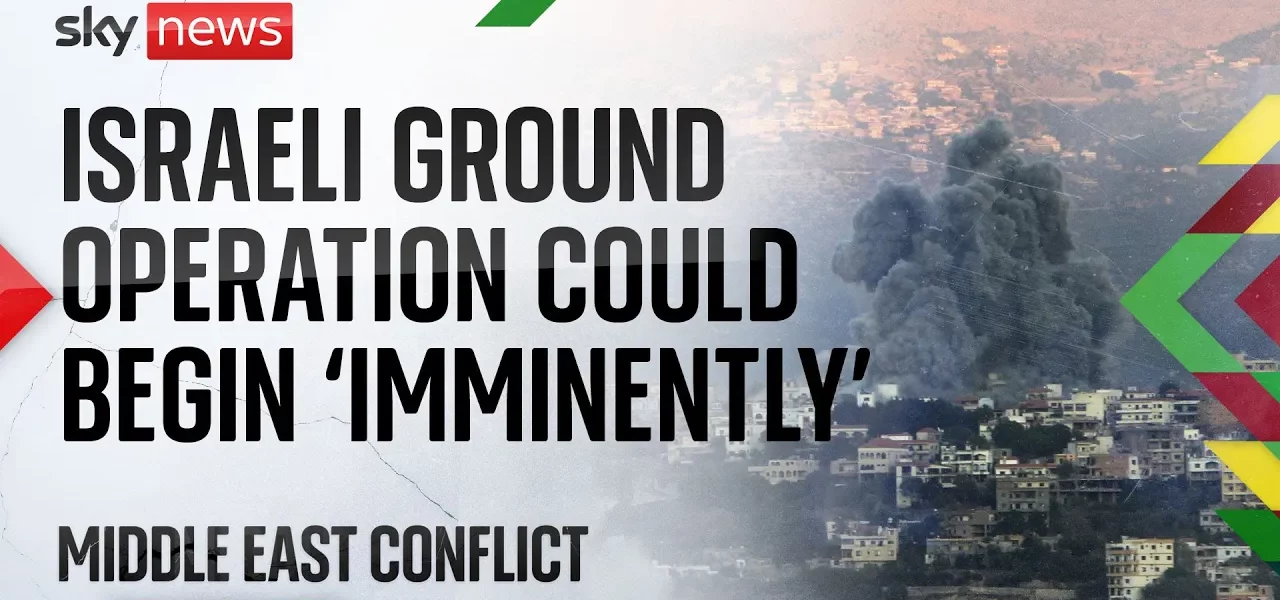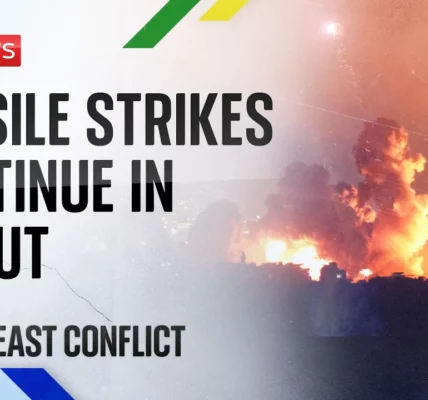Limited Ground Invasion in Southern Lebanon: An In-Depth Analysis

This article delves into the escalating military tensions in Southern Lebanon, focusing on the Israeli ground invasion and its potential consequences for regional security and the ongoing conflict with Hezbollah.
Introduction to the Current Situation
The recent developments in Southern Lebanon have raised significant concerns regarding a potential ground invasion by Israeli forces. Reports indicate that Israeli Special Forces may already be conducting limited raids within Lebanese territory. This situation has escalated rapidly, with heavy artillery fire and tank movements observed near the border, suggesting an imminent or ongoing military operation. The implications of this conflict are profound, impacting not only the regional stability but also international relations, particularly with the United States, which has urged Israel to maintain a limited scope in its military actions.
Military Escalation in Southern Lebanon
Heavy Artillery and Ground Forces
Recent imagery from the region shows heavy artillery fire, particularly in border towns such as Ramish in southern Lebanon. Local media reports confirm the presence of tanks, although verification remains challenging. The situation indicates a preparatory phase for ground operations, characterized by:
- Increased artillery bombardment targeting Hezbollah positions.
- Movement of Israeli military units into strategic locations.
- Repositioning of Lebanese military forces away from the border.
Responses from Hezbollah and Local Forces
Hezbollah’s response to the perceived Israeli threat has been both strategic and psychological. The organization, facing significant leadership losses, has expressed readiness for confrontation. Key points include:
- Hezbollah’s acknowledgment of the risks associated with an Israeli ground incursion.
- The organization’s claim of being prepared for battle, despite recent decapitations of their leadership.
- The strategic positioning of their fighters, many of whom gained experience in the Syrian Civil War.
International Implications and Reactions
United States’ Involvement
The role of the United States in this conflict cannot be understated. Prior to the military actions, the U.S. administration communicated with Israeli officials, advising them to limit their operations to prevent a broader regional war. Key implications of U.S. involvement include:
- Diplomatic pressure on Israel to restrain military actions.
- Concerns over civilian casualties and humanitarian crises.
- Potential repercussions for U.S. relations with Lebanon and other regional players.
Impact on Regional Stability
The ongoing conflict is likely to have lasting effects on regional stability. The potential for escalation into a larger war raises several concerns:
- Increased military presence and tensions along the Israel-Lebanon border.
- Risks of retaliatory strikes from Hezbollah against Israeli settlements.
- Potential involvement of other regional actors, complicating the conflict further.
Concluding Thoughts
In conclusion, the situation in Southern Lebanon is precarious, with a limited ground invasion by Israeli forces either underway or imminent. The rapid escalation of military actions highlights the fragile nature of the region’s security landscape. Both Hezbollah’s readiness for conflict and the international community’s response will significantly influence the outcomes of this unfolding crisis. As we monitor these developments, it is crucial to remain informed and engaged. For further insights and updates on this topic, please explore our related articles on Middle Eastern conflicts and military strategy.
“`




